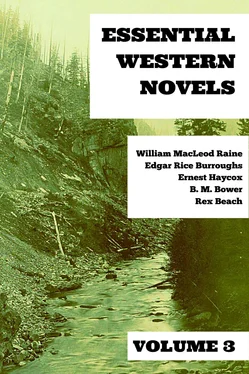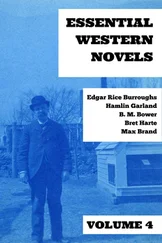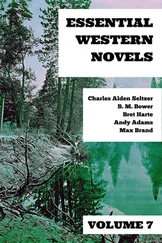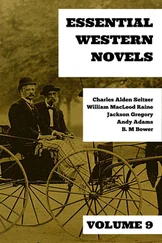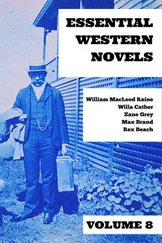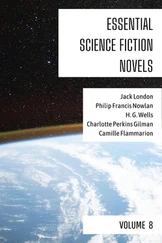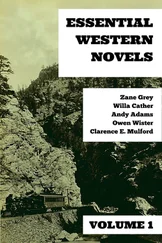When the backwoodsmen crossed the Alleghanies they put between themselves and the Atlantic Coast a barrier which seemed to separate them from a region already too much like the Europe they had left, and as they followed the courses of the rivers that flowed to the Mississippi, they called themselves "Men of the Western Waters," and their new home in the Mississippi Valley was the "Western World." Here, by the thirties, Jacksonian democracy flourished, strong in the faith of the intrinsic excellence of the common man, in his right to make his own place in the world, and in his capacity to share in government. But while Jacksonian democracy demanded these rights, it was also loyal to leadership as the very name implies. It was ready to follow to the uttermost the man in whom it placed its trust, whether the hero were frontier fighter or president, and it even rebuked and limited its own legislative representatives and recalled its senators when they ran counter to their chosen executive. Jacksonian democracy was essentially rural. It was based on the good fellowship and genuine social feeling of the frontier, in which classes and inequalities of fortune played little part. But it did not demand equality of condition, for there was abundance of natural resources and the belief that the self-made man had a right to his success in the free competition which western life afforded, was as prominent in their thought as was the love of democracy. On the other hand, they viewed governmental restraints with suspicion as a limitation on their right to work out their own individuality.
For the banking institutions and capitalists of the East they had an instinctive antipathy. Already they feared that the "money power" as Jackson called it, was planning to make hewers of wood and drawers of water of the common people.
In this view they found allies among the labor leaders of the East, who in the same period began their fight for better conditions of the wage earner. These Locofocos were the first Americans to demand fundamental social changes for the benefit of the workers in the cities. Like the Western pioneers, they protested against monopolies and special privilege. But they also had a constructive policy, whereby society was to be kept democratic by free gifts of the public land, so that surplus labor might not bid against itself, but might find an outlet in the West. Thus to both the labor theorist and the practical pioneer, the existence of what seemed inexhaustible cheap land and unpossessed resources was the condition of democracy. In these years of the thirties and forties, Western democracy took on its distinctive form. Travelers like De Tocqueville and Harriet Martineau, came to study and to report it enthusiastically to Europe.
Side by side with this westward marching army of individualistic liberty-loving democratic backwoodsmen, went a more northern stream of pioneers, who cherished similar ideas, but added to them the desire to create new industrial centers, to build up factories, to build railroads, and to develop the country by founding cities and extending prosperity. They were ready to call upon legislatures to aid in this, by subscriptions to stock, grants of franchises, promotion of banking and internal improvements. These were the Whig followers of that other Western leader, Henry Clay, and their early strength lay in the Ohio Valley, and particularly among the well-to-do. In the South their strength was found among the aristocracy of the Cotton Kingdom.
Both of these Western groups, Whigs and Democrats alike, had one common ideal: the desire to leave their children a better heritage than they themselves had received, and both were fired with devotion to the ideal of creating in this New World a home more worthy of mankind. Both were ready to break with the past, to boldly strike out new lines of social endeavor, and both believed in American expansion.
Before these tendencies had worked themselves out, three new forces entered. In the sudden extension of our boundaries to the Pacific Coast, which took place in the forties, the nation won so vast a domain that its resources seemed illimitable and its society seemed able to throw off all its maladies by the very presence of these vast new spaces. At the same period the great activity of railroad building to the Mississippi Valley occurred, making these lands available and diverting attention to the task of economic construction. The third influence was the slavery question which, becoming acute, shaped the American ideals and public discussion for nearly a generation. Viewed from one angle, this struggle involved the great question of national unity. From another it involved the question of the relations of labor and capital, democracy and aristocracy. It was not without significance that Abraham Lincoln became the very type of American pioneer democracy, the first adequate and elemental demonstration to the world that that democracy could produce a man who belonged to the ages.
After the war, new national energies were set loose, and new construction and development engaged the attention of the Westerners as they occupied prairies and Great Plains and mountains. Democracy and capitalistic development did not seem antagonistic.
With the passing of the frontier, Western social and political ideals took new form. Capital began to consolidate in even greater masses, and increasingly attempted to reduce to system and control the processes of industrial development. Labor with equal step organized its forces to destroy the old competitive system. It is not strange that the Western pioneers took alarm for their ideals of democracy as the outcome of the free struggle for the national resources became apparent. They espoused the cause of governmental activity.
It was a new gospel, for the Western radical became convinced that he must sacrifice his ideal of individualism and free competition in order to maintain his ideal of democracy. Under this conviction the Populist revised the pioneer conception of government. He saw in government no longer something outside of him, but the people themselves shaping their own affairs. He demanded therefore an extension of the powers of governments in the interest of his historic ideal of democratic society. He demanded not only free silver, but the ownership of the agencies of communication and transportation, the income tax, the postal savings bank, the provision of means of credit for agriculture, the construction of more effective devices to express the will of the people, primary nominations, direct elections, initiative, referendum and recall. In a word, capital, labor, and the Western pioneer, all deserted the ideal of competitive individualism in order to organize their interests in more effective combinations. The disappearance of the frontier, the closing of the era which was marked by the influence of the West as a form of society, brings with it new problems of social adjustment, new demands for considering our past ideals and our present needs.
Let us recall the conditions of the foreign relations along our borders, the dangers that wait us if we fail to unite in the solution of our domestic problems. Let us recall those internal evidences of the destruction of our old social order. If we take to heart this warning, we shall do well also to recount our historic ideals, to take stock of those purposes, and fundamental assumptions that have gone to make the American spirit and the meaning of America in world history.
First of all, there was the ideal of discovery, the courageous determination to break new paths, indifference to the dogma that because an institution or a condition exists, it must remain. All American experience has gone to the making of the spirit of innovation; it is in the blood and will not be repressed.
Then, there was the ideal of democracy, the ideal of a free self-directing people, responsive to leadership in the forming of programs and their execution, but insistent that the procedure should be that of free choice, not of compulsion.
Читать дальше
